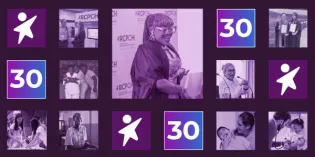This page is for those exploring, applying to or already in this sub-specialty training programme! We have insights from current specialists on what it's like working in paediatric neurology, opportunities to try out the sub-specialty and links to the relevant groups and other contacts.
Each sub-specialty has its own syllabus as part of Progress+ which you can download from this page, plus get details of the College Specialty Advisory Committee (CSAC) managing this sub-specialty.
1. What makes a paediatric neurologist?
A paediatric neurologist needs to have expertise in a wide range of disorders from fetal life to adulthood (16-18 years) including:
- epilepsy and paroxysmal disorders
- neuromuscular disorders
- cerebrovascular disease
- brain and spinal injury
- infections of the brain and spinal cord
- brain and spinal tumours
- neuroinflammatory disorders
- neurogenetic disorders
- movement disorders
- white matter disorders
- inborn errors of metabolism
In addition, paediatric neurologists have generic expertise in neuroimaging, molecular medicine and neurosurgical disorders. Some will sub-specialise and work largely or exclusively in a particular field.
Paediatric neurologists are usually based in a regional neuroscience centre providing secondary and tertiary-level services, working in outpatient and hospital settings. In the acute setting, they manage a wide spectrum of disorders and provide shared care management of patients in the paediatric intensive care unit (PICU) and the neonatal ICU (NICU) and of patients undergoing neurosurgery.
They provide specialist support to paediatric specialty colleagues, advising on the diagnosis and ongoing management of the chronic and complex disease. Paediatric neurologists work particularly closely with neurodisability paediatricians, neurosurgeons, neurophysiologists, neuroradiologists and neurogeneticists.
2. A day in the life of a paediatric neurologist
Paediatric neurology is a fascinating and diverse sub-specialty supporting children and families with a broad range of neurological conditions. There is so much variety, a typical day does not exist, but a typical week for a paediatric neurologist might include:
- General neurology outpatient clinics, seeing children with seizures, developmental delay, gait difficulties, and many others
- Weeks on service, seeing children on ward rounds who are inpatients with neurological disorders, providing consults to other specialties, and advice to regional paediatric units
- Sub-specialty clinics such as complex epilepsy, neuromuscular, movement disorders, and many other possibilities
- Working in multi-disciplinary teams with specialist physiotherapists, advanced nurse practitioners, specialist nurses
- Meetings with neuroradiologists, electrophysiologists, specialist psychologists, and many others to undertake shared decision-making for patients
- Delivering cutting-edge disease-modifying genetic therapies to patients with neurogenetic conditions
3. How and where to experience paediatric neurology in your early medical career
Children with neurological disorders are a core part of all of our work as paediatricians, and doctors in training can get exposure to secondary-level child neurology in their local paediatric hospitals.
There are tertiary paediatric neurology departments in the regional children’s hospitals, and many local children’s hospitals have outreach clinics joint with local teams.
Doctors in training at any level are encouraged to contact their local teams – the BPNA have recruitment champions at both consultant and doctor in training level in all regions who are enthusiastic and happy to be contacted. Taster sessions can also be arranged.
4. Applying to a paediatric neurology programme
Paediatric neurology is always looking for applicants who have a keen interest in neurosciences, excellent communication skills, and an understanding of what paediatric neurology involves.
More information on the application process and how to prepare for the written application and interviews is presented in the annual webinars from the BPNA, with recordings of previous events free to watch. Potential applicants should get in touch with their local teams (and/or local recruitment champions) to understand them and the work.
5. Information for paediatric neurology trainees
The best source of information for paediatric neurology trainees is the BPNA Trainees’ Special Interest Group. This group works closely with the neurology CSAC to support trainees at all stages from recruitment to being a new consultant, and provides an annual conference and training days. This is an active community of paediatric neurology doctors in training, those interested in applying, epilepsy SPIN trainees, and medical students. There is also a mentoring scheme in place for sub-specialty trainees in their final year of training.
The Neurology CSAC have put together an Educational supervision guidance document to help their sub-specialty trainees as they enter the training programme, and for supervisors to support their trainees. This can be found below in the Downloads section. This explains how Neurology training will work, sources of support, ePortfolio requirements and educational opportunities.
External links
To find out more about paediatric neurology, the CSAC recommend the following websites as useful resources:







